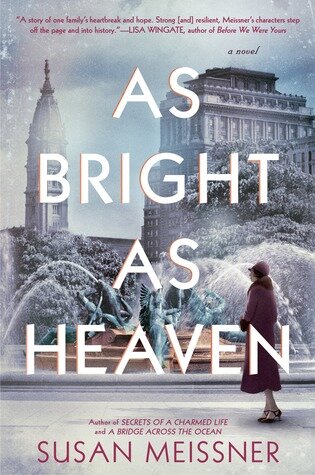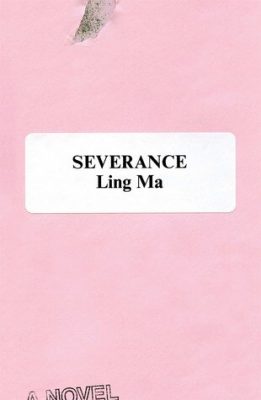I never would imagine I’d gravitate to reading about global pandemics in the midst of one, but somehow that’s what happened. These two books, the first a dystopian imagining of a contemporary pandemic originating in China, and the second a historical story set in Philadelphia during the 1918 Spanish flu pandemic, are both instructive and illuminating in a strange sort of way.
I’m sure many of you have seen Youtube video of Bill Gates predicting the current global pandemic. Though Severance was published in 2018, Ling Ma’s ominously bleak novel is even more on the nose, eerily similar to what we are experiencing today during the Covid-19 pandemic. In the story, the disease is Shen fever, a fungal disease that begins in China and soon spreads worldwide. At first, people believe it’s a hoax, overhyped and overblown, but as more people become fevered, everything begins to shut down. Candace Chen, a first generation Chinese-American, works for a publisher in Times Square, and witnesses first hand the closure of the city that never sleeps. Vowing to complete her contract at work, she finally flees ghost town Manhattan with a secret only she knows. When she joins a band of eight other survivors, she must decide if she should share her secret and whether it will change her chance of survival in this cruel new world. Told in alternating before and after chapters, this book is haunting, smart and eerily close to home. Ma raises questions about consumerism, the meaning of family, and the value of work. Like other readers, I found the ending a bit rushed, but that didn’t negate the incredible power of the story.

At first I wasn’t sure this was the right time to read about one of history’s deadliest pandemics, but I somehow felt the need to educate myself about the past in order to understand our present. The Spanish flu pandemic of 1918 infected approximately a third of the world’s population and killed an estimated 50 million people world wide. Meissner chose Philadelphia as the setting because it was one of the hardest hit cities in the US. The story follows the Bright family with alternating point of view between the mother, Pauline, and her three daughters. Before the flu takes hold, the family moves from rural Pennsylvania to Philapdelphia to help an uncle manage his funeral home. Little did they know that they would be on the front lines of the epidemic.
So many things about the flu epidemic parallels the unfolding story of Covid-19. Here are a few passages that hit particularly close to home.
“A boy whose name is Chester says everything is being closed. All the schools. The churches. The theaters. Parks. Any place where a crowd would gather.”
”My neighbor said there are no more beds at any of our hospitals,” says a girl names Louise…”He stood in line with his wife and waited for two hours before the nurses told him that he’d have to carry her back home. And they didn’t give her any medicine.”
“This flu is like a black shroud that has been flung across everything that breathes under the canopy of heaven, and if you could stand back far enough, you wouldn’t see all the people it touches, only the immense length and breadth of its expanse.”
Each of the main characters has her own storyline they are all equally compelling. Because of the first person narration, I occasionally had a hard time remembering whose chapter I was reading, but that didn’t take away from my enjoyment of the story. Meissner does a beautiful job exploring the emotional devastation of such a horrific and wide-reaching illness.
